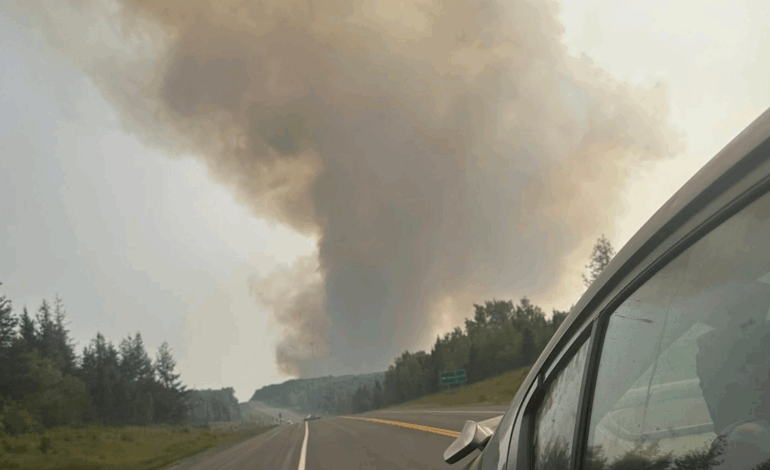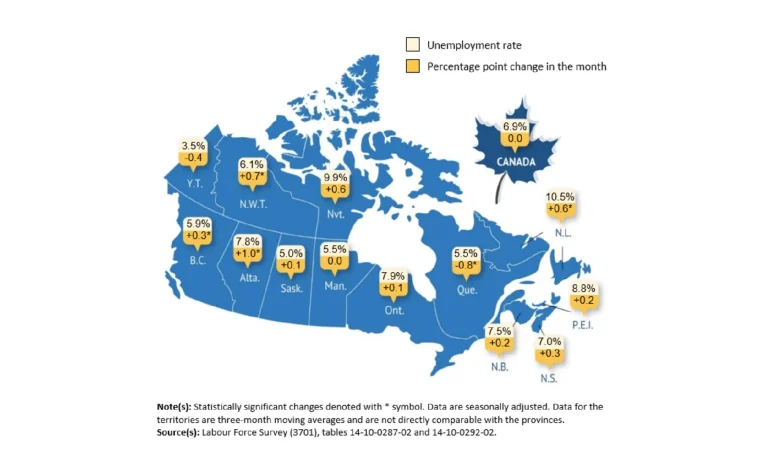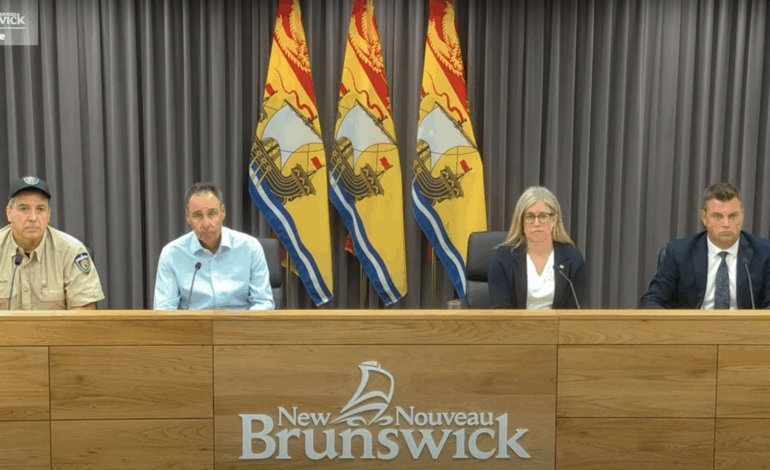
A forest fire near Miramichi has spread to roughly 160 hectares, expanding two and half times its size overnight.
“Fire protection has been placed around several camps and a communications tower as a precaution,” according to a statement from the Department of Natural Resources and Energy Development (DNRED).
Over the next several days, New Brunswick is expected to continue to experience extreme fire weather conditions, with high winds, high temperature, and low humidity.
“It is a very dangerous situation with the state of fuels,” the statement said, regarding the ignitable material in the forest. “We also now have two skimmer aircrafts from Quebec in action that can land on and scoop water from lakes or other bodies of water, then drop it on wildfires.”
Fire officials are asking people to stay away if they see these planes are near water for the safety of the pilots and themselves.
Two other fires ignited on Friday, one in St. Paul and another in Harvey. The department said both are considered under control.
Forestry restrictions
On Friday, New Brunswick implemented province-wide forestry restrictions.
As of midnight on Aug. 9, several types of forestry activity are restricted until 11:59 p.m. on Tuesday, according to the release.
Harvesting, forwarding, skidding, scarification, chipping and all pre-commercial thinning and cleaning are restricted. While trucking, road construction and maintenance, vegetation management and tree planting remain allowed.
It said the restrictions could change as fire officials continue to monitor the conditions in New Brunswick. The entire province remains under a burn ban.
Forest fires burning across Canada
There are 95 uncontrolled wildfire burning across Canada, according to Natural Resources Canada.
Another 67 are being held, and 147 are considered controlled. In 2025, there have been 4,136 fires to date, burning 6,887,686 hectares.
The ten year average for wildfires in Canada is 4,384, burning about 2,943,163 hecatares.
Most provinces apart from Northwest Territories, Ontario and Quebec have restrictions on burning or restrictions on activities in wooded areas. In Nova Scotia, all activities in the woods like hiking, camping, fishing are restriction. Violations of the ban could mean a fine of $25,000.
In Newfoundland and Labrador, the government drastically increased penalties and fines for those who start fires during the fire ban.
Fines range from $50,000 to $150,000. It also includes the possibility of one year in prison.
Drones and other aircrafts are restricted from entering airspace over wildfires.




